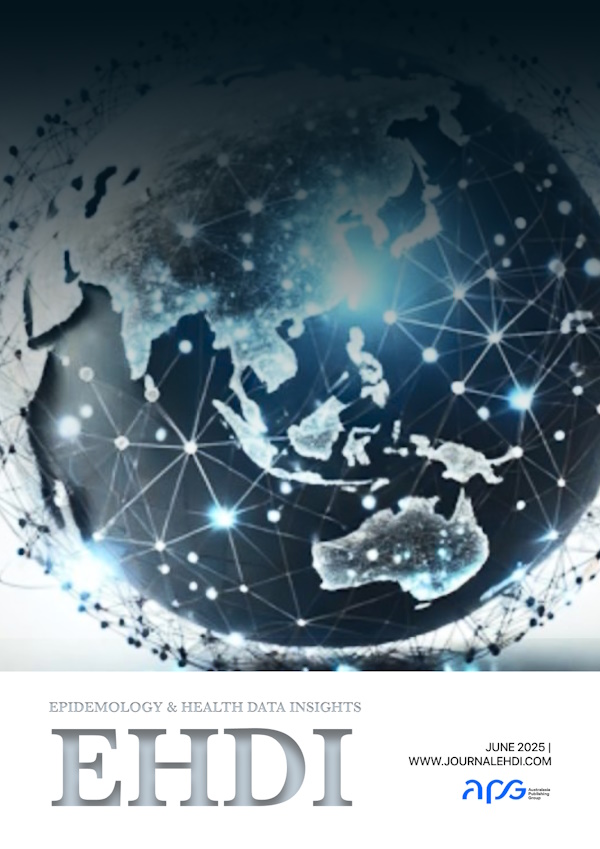
Aims and Scope
Aims
Epidemiology & Health Data Insights (ISSN 3080-8111) aims to serve as a leading platform for publishing high-quality research that bridges the fields of epidemiology and data science. The journal seeks to advance the understanding of health determinants and outcomes through innovative methodologies, fostering actionable insights for public health improvement and healthcare policy.
Scope
The journal welcomes original research, reviews, and case studies in the following areas:
- Epidemiological Studies:
- Investigation of disease patterns, causes, and effects on populations.
- Studies on communicable and non-communicable diseases.
- Methodological advancements in epidemiology, including biostatistics and modeling.
- Genetic epidemiology - how genetic factors influence health and disease in populations, and how genes interact with environmental factors.
- Health Data Science:
- Applications of machine learning, artificial intelligence, and big data analytics in health.
- Integration of electronic health records and registries in research.
- Data visualization and interpretation for health outcomes.
- Public Health and Policy:
- Health equity and social determinants of health.
- Evaluation of public health interventions using data-driven approaches.
- Population health management and decision support systems.
- Health systems research, including organization, financing, governance, health workforce and service delivery to improve health outcomes and equity.
- Health management including leadership, strategic planning, quality improvement, organizational performance and innovation in healthcare organizations.
- Health policy development, implementation, evaluation, and health advocacy.
- Translational Insights:
- Bridging research to practice: transforming data findings into public health solutions.
- Case studies showcasing real-world applications of epidemiological data.
- Global and Regional Health Perspectives:
- Comparative epidemiological studies across regions.
- Insights into emerging global health crises through data analytics.
- Real-World data and Real-World Evidence studies:
- Clinical Outcomes & Effectiveness – Research on real-world treatment effectiveness, safety, and comparative effectiveness studies.
- Pharmacovigilance & Drug Safety – Post-marketing surveillance, adverse event monitoring, and long-term drug safety analysis.
- Health Economics & Policy Impact – Cost-effectiveness studies, healthcare utilization, and policy decision-making based on real-world data.
- Data Science & Methodology – Advanced analytical techniques, AI/machine learning applications, and innovative study designs in RWE research.
- Patient-Centered Research – Patient-reported outcomes, quality of life studies, and digital health data integration.
- Regulatory & Ethical Considerations – RWE applications in regulatory approvals, ethical concerns, and data governance.
- Research Protocols and Methods:
- Study Design & Methodology – Innovative research designs, protocol development, and methodological advancements.
- Data Collection & Analysis – Novel data acquisition techniques, statistical methods, and AI-driven analytics.
- Ethics & Reproducibility – Best practices in ethical research, transparency, and reproducibility of scientific findings.
- Interdisciplinary Approaches – Methodological innovations across clinical, epidemiological, and biomedical sciences.
- Technology & Digital Tools – Emerging technologies, digital health solutions, and computational methods in research.
The Epidemiology & Health Data Insights is designed to increase the depth of the object in these areas, with the aim of expanding knowledge of the subject. We encourage researchers worldwide for contributing and presenting manuscripts through an online submission system https://www.editorialpark.com/ehdi in the English language.